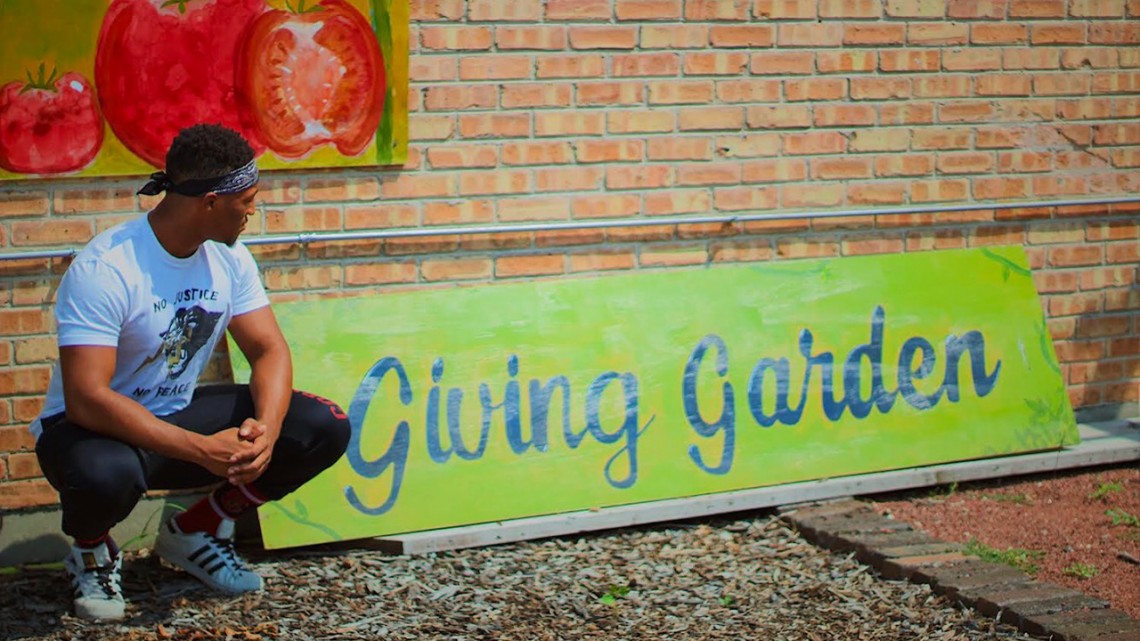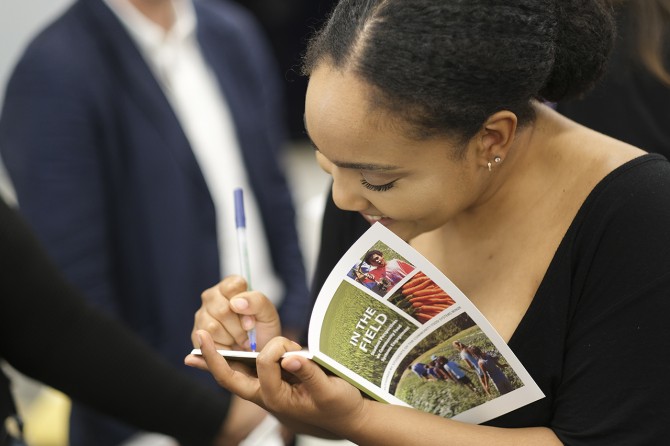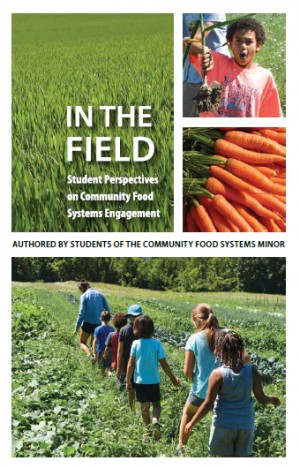
Marquan Jones spent his 2018 summer practicum in Chicago by strengthening the local food system.
Cornell’s food systems students detail experiences in book
By Blaine Friedlander
The students in Cornell’s first two cohorts of the community food systems minor now have global experience in the world of sustenance, which they’ve shared in a book, “In the Field: Student Perspectives on Community Food Systems Engagement.”
The minor, which started in Fall 2016, is a multidisciplinary course of study that explores the agricultural, ecological and ethical dimensions of sustenance. While several students stayed in the U.S. for their summer 2018 practicum, others traveled to India or China. They collected memorable, meaningful and engaging reflections for the book, which published May 15.
For Marquan Jones ’20, growing up in a Chicago food desert inspired him to study development sociology. Jones spent his summer 2018 practicum as a project director for the Proviso Partners for Health in Chicago. There, he worked on programming for the Giving Garden, part of the Food Justice Hub that strengthens the local food system through urban gardening, farm stands and a fresh food subscription program.
“There is certain knowledge and experience that I’ve had that no one else in my community has had, leaving me in an in-between space – not quite an insider, but not an outsider, either,” said Jones, whose poems, relating to community food systems, also were published in the book.
Nicole Lee ’20 grew up in Hong Kong and worked last summer at Green Monday, a social enterprise promoting healthy, green and sustainable living in her hometown.
Because Hong Kong is a meat-centric culture, Lee, a vegetarian, was peppered with questions from the other Green Monday interns: “What’s the difference between vegan and vegetarianism?” or “How do you prepare quinoa?” or “What’s the deal with kale?”
Said Lee: “I was in a different space. Not Ithaca, New York, where kale can be found in the local co-op or the weekly farmers market. I was in Hong Kong, my home – a community with a whole food system of its own.
“Kale and quinoa are novelties. Açai bowls are unheard of. I kept getting these questions throughout the week about cooking terms, new ingredients and superfoods,” Lee said. “I was asked how to pronounce certain brands and products, and at times I wondered if I was even giving the right answer.”
From the Bedford-Stuyvesant neighborhood in Brooklyn, New York, Amari Sealey ’19 is a second-generation descendent of Trinidadian-American immigrants. She interned at Cornell Cooperative Extension of Tompkins County and collected data at the Ithaca Farmers Market with an aim to boost the income of local farms.
Hannah Fuller ’19 spent her practicum summer in northern India as a Life Sciences Global Fellow with the Tata Cornell Institute for Agriculture and Nutrition. She was part of a team that used orange-flesh sweet potato as a nutrition intervention for vitamin A deficiency.
Maya Chang Matunis ’20, who comes from a family of artists and activists, illustrated the book. She interned with the Cornell Farmworker Program in upstate New York, engaging with the workers and their families.
Lindsey McMahon ’19 interned with Capital Roots, a nongovernmental organization working on the “Squash Hunger” initiative, which recovers and redistributes fresh food to homeless shelters, soup kitchens and food pantries. “Food is transformative and powerful in so many ways, but above all, it is unifying,” McMahon said in the book. “It is a universal language that brings people of all walks of life together.”
The book’s other authors are Elizabeth Couse ’19, Giulia DiMarino ’19, Noelle LaDue ’19, Caroline Sheridan ’20, and Tamsin Smith ’17.
Rachel Bezner Kerr, professor of development sociology, directs the minor. Scott Peters, professor of development sociology, teaches the minor’s capstone class. Heidi Mouillesseaux-Kunzman, senior extension associate with Cornell’s Community and Regional Development Institute, and doctoral candidate Tess Pendergrast, in development sociology, coordinate the minor.
Funding support for the Community Food Systems minor came from an Engaged Cornell curriculum grant.
Media Contact
Get Cornell news delivered right to your inbox.
Subscribe


